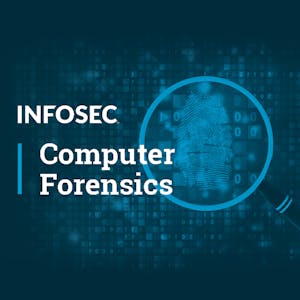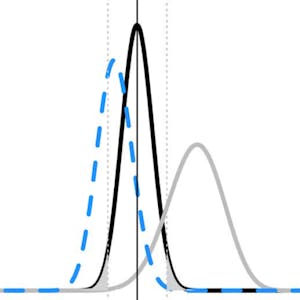Computer Forensics
About this Specialization
This three part InfoSec Specialization covers a wide variety of Computer Forensics topics. In the Digital Forensics Concepts course, you will learn about legal considerations applicable to computer forensics and how to identify, collect and preserve digital evidence. This course dives into the scientific principles relating to digital forensics and gives you a close look at on-scene triaging, keyword lists, grep, file hashing, report writing and the profession of digital forensic examination. The Windows Registry Forensics course shows you how to examine the live registry, the location of the registry files on the forensic image, and how to extract files. Finally, the Windows OS Forensics course covers windows file systems, Fat32, ExFat, and NTFS. You will learn how these systems store data, what happens when a file gets written to disc, what happens when a file gets deleted from disc, and how to recover deleted files. You will also learn how to correctly interpret the information in the file system data structures, giving the student a better understanding of how these file systems work. This knowledge will enable you to validate the information from multiple forensic tools properly.Created by: Infosec

Related Online Courses
Knowledge of Geographic Information Systems (GIS) is an increasingly sought after skill in industries from agriculture to public health. This Specialization, offered in partnership with ArcGIS... more
Embark on a transformative journey in ethical hacking. This course begins with the fundamentals of penetration testing, where you\'ll set up a robust pentesting lab using VirtualBox and Kali Linux.... more
Health systems worldwide seek to prevent and treat disease and illness and improve well-being and quality of life. This specialisation focuses on improving the quality of the services provided by... more
\"Inclusive Communication and Behavior in the Workplace\" is an thought-provoking, short-form course designed for beginners interested in developing their inclusive practices. Comprising two... more
This course aims to help you to draw better statistical inferences from empirical research. First, we will discuss how to correctly interpret p-values, effect sizes, confidence intervals, Bayes... more








